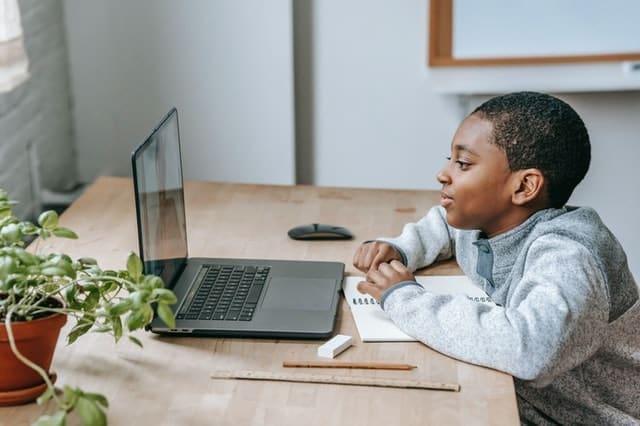The COVID-19 crisis has affected 94% of the world’s student population, as schools and other learning facilities have been forced to close to curb the spread of the virus. To overcome the disruption in education, technology has come to the rescue in providing online tools and resources for continuous learning to take place.
While these developments are exciting, stimulating innovative approaches and the integration of technology in the classroom, it has also highlighted the existing digital divide in rural areas where there is often a lack of infrastructure, resources and skills to make online learning a success. In South Africa, that puts thousands of learners at rural schools at risk of being left behind.
As a tech business that believes in technology enabling societal change, we have an obligation to partner with the government and non-governmental organisations to come up with solutions to bring about quality education to rural communities affected by the pandemic. By facilitating and supporting online learning, we can bridge inequalities and develop digital skills needed now in a COVID-19 world and in the future.
Breaking down barriers to connectivity
In many of our country’s rural areas, participation in e-learning is constrained by technological barriers. Telecommunications companies must work together with government and other stakeholders to develop infrastructure that makes connectivity more accessible for learning and teaching. We have added hundreds of new network sites in deep rural communities and townships to ensure that people in these areas are not left behind in the Digital Age.
This expansion in coverage increases the possibilities for digital learning in rural areas through a smartphone, which is more affordable and less infrastructure heavy than a PC. However, the cost of data can hinder this solution, which is why zero-rating online educational services is critical in delivering ICT-based education to rural learners, especially during the pandemic. One such example is Vodacom’s zero-rated e-School platform, developed in partnership with the Department of Basic Education in 2014, which enables learners to access curriculum-aligned content and educators’ learning materials on a smart device at no cost.
Making access to educational resources easier
With mobile online education, learners and educators can access material and coursework at any time, wherever their location. Never has this been more necessary as rural schools and academic campuses remain closed or partially open during the pandemic. This also assists rural learners who often have to travel long distances in remote regions, or dedicate their time to household obligations, as mobile digital learning provides flexibility to make studying easier.
In rural settings, where physical infrastructure and a lack of resources are major challenges in the education system, digital platforms, like Vodacom’s e-School, can provide educational content in place of books, worksheets or libraries, helping to reduce expenditure, overcome material shortages and provide learning aids out of the classroom. Through online technology, both learners and educators have access to wealth of topics and related material in the curricula, as well as interactive learning tools, such as videos and real-time tutorials, which can make learning more interesting and deepen knowledge.
Developing digital literacy skills
Making the internet more accessible and providing educational tools are not the only
factors in making a difference to continuity learning in rural areas. It’s essential that both learners and educators have an understanding of how to use online resources and a skillset to leverage digital technology during the pandemic as well as later in life.
Research has shown that teacher encouragement has a significant role to play in learners’ success rates. In remote learning situations, and even as schools ease back into the physical classroom, educators need to feel confident in online teaching methods if they are to have an impact on their students. The Vodacom Foundation collaborated with the Department of Basic Education, Microsoft and other partners to train teachers on how to integrate ICT into the classroom. With these digital literacy skills, educators can feel prepared in assisting students with their own digital development, even if it’s only through the devices at their disposal in rural areas, such as a mobile phone.
The COVID-19 pandemic has shown that if we are to leverage technological innovations in education that promise a brighter future for all, including our youth affected in rural areas, we need to help bridge the divides that already exist. For us, at Vodacom, this means providing an enabling environment to access online learning and provide digital support through tools such as our e-School platform, to both educators and learners so that no one is left behind on the journey towards a digital future.
- Takalani Netshitenzhe, Chief Officer of Corporate Affairs in Vodacom Group
- This article was published in partnership with Vodacom Group
